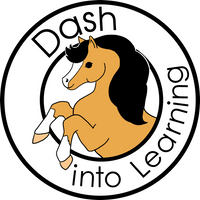How You Can Stop Your Parental Yelling Now!

Today I am sharing some insights from our podcast, Families With Dash! Why do we, as parents, yell so much? Can we effectively get our views across by cutting out all that yelling? You bet! Our emotions aren't like a boiling pot that will explode if we don't share them. In fact, research shows that expressing anger makes you more angry.
In this episode of the podcast, I was talking with Joan Landes about how we can cut down on all that yelling. (She has many years of experience as a licensed clinical mental health counsellor; she is a mother of seven and a grandmother of sixteen.)
I think today's topic is relatable to every parent ever! We want to stop that habit of yelling. Yelling has a lot of causes and can cause a lot of harm to our children. But there's hope! There are a number of really good solutions to stop yelling.
First, what are the harmful effects of yelling?
So you might think it's fine. "I am just blowing off some steam. Everyone's going to forget later." And yet there is some interesting research about yelling at your children. Part of that is yelling at your children habitually, and especially if it has demeaning or shaming content, it can actually create anxiety and aggression in your children.

Another harm is that we then see ourselves as yellers. We see ourselves as impatient parents. That takes a toll on us too. We don't want to be that kind of parent.
Also, if we are always yelling at level 10, our children will become desensitised to our yelling. There will be less listening and more "Oh, mom or dad is yelling again." In the parent-child relationship, this takes away our power and makes us feel even more powerless.
As women, we are more sensitive to voice tone. You may have noticed the men in your life often sound angry when, in fact, they are just inflecting in a deeper masculine way. Our kids are sensitive to tone as well. When we indulge in yelling, the tone in the home becomes negative.
What are the Differences Between Occasional Yelling and Habitual Yelling?
There is a difference between yelling to get attention and yelling to shame or demean someone. My mother, Joan, was raised to believe that there really shouldn't be yelling unless your house was on fire.

So if you think of that the next time you catch yourself yelling at your kids, you can use it as a little reset button. "Why am I yelling?" "Should I be yelling over this?"
If you reserve your yelling for major life events, such as when the house is actually on fire, or a child running into the road. Your children will then sit up and pay closer attention to your yelling. Because you don't normally yell, they realize they must stop and listen.
What's causing all that yelling?
Research in Sweden showed that when corporal punishment was abolished, yelling increased. Part of that was because parents hadn't been equipped with other good strategies to deal with things.
This is also part of what's causing all the yelling in our culture as well. We are trying to do better as parents by avoiding spanking. We are left with the question, "How do I deal with this if I can't spank my child?"
Another cause for your yelling may stem from your own upbringing. If you grew up in a family of yellers, you will likely tend to use that as your default.
If you're a chronically stressed person, it's easy to fall into the trap of externalising that stress. We blame others, and we will want to offload that sense of responsibility onto others.
How do we stop all this yelling?
Working on your attachment with your children is always the best solution. Staying focused on strengthening your relationship with your children will help them be more sensitive to your requests.

Another way to avoid feelings that lead to an increase in yelling is to set effective boundaries and practice discipline.
Teach and train your child beforehand. Don't just catch them doing something wrong. If you notice there are certain things that are triggering you, sit down with your child and proactively discuss the problem. And come to an agreement on how to solve the problem as a group. Then actively practice this with the kids. You will notice incremental improvements.
Give your child cues to understand when a problem is arising. This will empower your child to know it's up to them to be part of the solution.
Acknowledge your childs strengths. We don't want to just look for the bad in our children. It shifts the paradigm away from the bad and back onto the positives.
Instead of yelling, take action. You're not disempowered; there are things you can do. If there is something going on that needs to stop, quickly scoop up that child and remove them from the situation. The actual surprise of being scooped contributes to this being effective. You are showing them you're holding firm and that what they are doing is not appropriate. Take the time to then sit down with them and discuss why this happened.
In fact, if you whisper to them about why things unfolded the way they did, they will be fully attentive, and you don't have to yell.
If you truly want to change a child's behaviour, reward their good behaviour. Yelling is negative reinforcement. Verbal reward is effective.
Instead of using the high volume. Use big gestures with your hands or arms. It's effective at getting your child's attention.
The big takeaway. Know your triggers. Pay attention to them and take positive action.
What methods do you use to gently parent your child? We would love to hear how you avoid falling into the yelling habit. Leave us your comments below.




